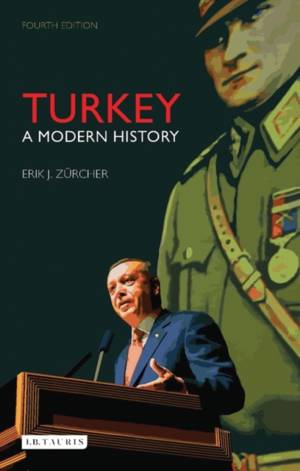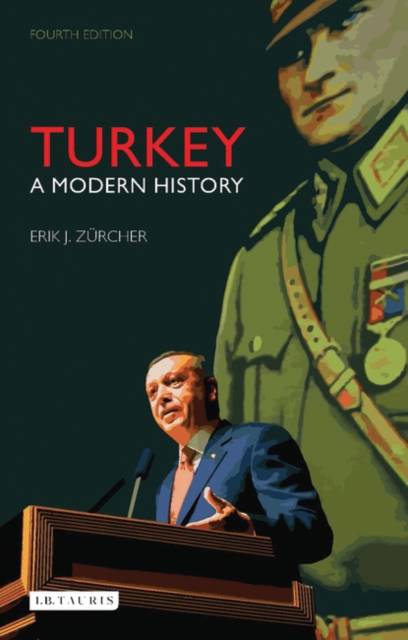
- Afhalen na 1 uur in een winkel met voorraad
- Gratis thuislevering in België vanaf € 30
- Ruim aanbod met 7 miljoen producten
- Afhalen na 1 uur in een winkel met voorraad
- Gratis thuislevering in België vanaf € 30
- Ruim aanbod met 7 miljoen producten
Zoeken
Omschrijving
This revised edition builds upon and updates its twin themes of Turkey's continuing incorporation into the capitalist world and the modernization of state and society. It begins with the forging of closer links with Europe after the French Revolution, and the changing face of the Ottoman Empire in the 19th century. Zurcher argues that Turkey's history between 1908 and 1950 should be seen as a unity, and offers a strongly revisionist interpretation of Turkey's founding father, Kemal Ataturk. In his account of the period since 1950, Zurcher focuses on the growth of mass politics; the three military coups; the thorny issue of Turkey's human right's record; the alliance with the West and relations with the European Community; Turkey's ambivalent relations with the Middle East; the increasingly explosive Kurdish question; and the continuing political instability and growth of Islam.
Specificaties
Betrokkenen
- Auteur(s):
- Uitgeverij:
Inhoud
- Aantal bladzijden:
- 488
- Taal:
- Engels
- Reeks:
Eigenschappen
- Productcode (EAN):
- 9781784531867
- Verschijningsdatum:
- 24/04/2017
- Uitvoering:
- Hardcover
- Formaat:
- Genaaid
- Afmetingen:
- 135 mm x 218 mm
- Gewicht:
- 539 g

Alleen bij Standaard Boekhandel
+ 542 punten op je klantenkaart van Standaard Boekhandel
Beoordelingen
We publiceren alleen reviews die voldoen aan de voorwaarden voor reviews. Bekijk onze voorwaarden voor reviews.







